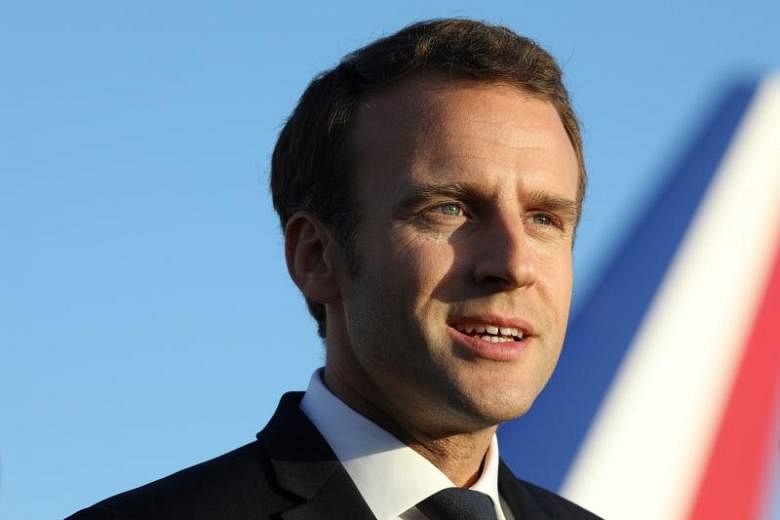SOFIA (AFP) - Britain is backing a French plan to create a European military intervention force as a way to maintain strong defence ties with the EU fter Brexit, a minister told AFP on Saturday (May 5).
The British junior defence minister Frederick Curzon said London was "very keen to support" French President Emmanuel Macron's plan for a force that could be deployed rapidly to deal with crises.
The force, known as the European Intervention Initiative, would be separate from other EU defence cooperation, meaning there would be no obstacle to Britain taking part after it leaves the bloc.
"We're very keen to support President Macron in this initiative," Curzon told AFP as he arrived for a meeting of EU defence ministers in Sofia.
"We look forward to sitting down with our French colleagues to work through the ideas that they have formulated for a more efficient and joined up security and defence system across Europe. We think it has a real part to play."
Twenty-five EU countries signed a major defence pact in December, agreeing to cooperate on various military projects, but it is not clear whether Britain would be allowed to take part in any of these after it leaves the bloc.
London has always resisted moves to create anything resembling an "EU army" but it has also stressed it wants to continue to have close security ties with the EU after Brexit.
Curzon said the intervention initiative could play an important role in this.
"It certainly will help to achieve what we are looking for, which is a deep and special partnership with our European colleagues in defence and security," he said.
The EU this week announced plans to spend nearly 20 billion euros on defence in its budget for 2021-2027, most of which will go on research and developing new military technologies for the bloc.
But December's defence cooperation agreement, known by the acronym PESCO, did not go far enough for France because it did not include plans for an intervention force.
French Defence Minister Florence Parly told the Munich security conference in February that the planned force would be able to "respond to a threat in the EU's immediate neighbourhood, particularly the south".
Parly held talks with EU foreign policy chief Federica Mogherini on the sidelines of Saturday's meeting to explain the plan, which has reportedly attracted interest from nine countries including Italy, Spain, Germany, Denmark and Estonia.

